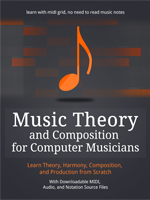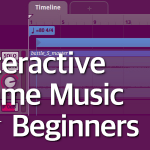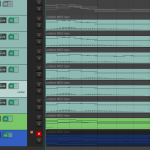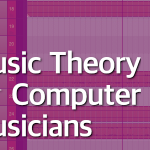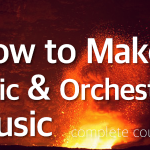Symphobia, Albion and Metropolis Ark – these are three “all in one” virtual orchestral libraries recommended for beginners. Which one should you choose? I already gave you some tips in my How to Make Epic and Orchestral Music course, part 3. In case some people may miss this entire series, I want to answer this question in a separate short article. Both Spitfire Audio and Orchestral Tools produced multiple “all in one” libraries, but for the purpose of this article, I will focus on three (well, four) libraries: Symphobia 1 and 2, Albion One, and Metropolis Ark 1, assuming that you’re interested in producing more epic and more powerful orchestral music, and you’re a beginner selecting your first library.
Let’s start with links (they’re not affiliate links, I don’t earn anything when you make a purchase here):
I’m not going to compare the sound of the libraries with any videos or music examples. There are such comparison on YouTube made by many other people, and you can compare the libraries yourself, by listening to demos on their websites. This article is more like a great opportunity to explain to people just starting out how to choose between various libraries, what to take into consideration and so on.
- Since I already mentioned demos, here’s a tip: don’t believe the library or any virtual instrument will sound like in demo out of the box. Most of these demos are using the product being sold along with other libraries and instruments, and most tracks are already mixed and mastered, and they are developed by either the makers who know everything about the library, or they’re composed by experienced composers. Don’t be disappointed or discouraged, since getting a great sound out of a library takes some time and work.
But first, let’s answer a question you may have: I’m a total beginner, and I want to start making orchestral music. What library should I pick up first? The answer is simple: Albion One.
I do not use Albion One myself, because when I was starting out, no one told me this is the best choice :). But this particular library is so versatile and so great when it comes to sound, it’s really great for beginners. You get everything you need, both orchestral and synth, and you can use this library for many genres. It’s the best buck for the money (if Spitfire wants to gift me with a license, I won’t object).
Albion One is the most versatile of all three libraries. If you don’t really know what orchestral genre you want to produce, go for Albion. It’s versatile, universal and it will fit most orchestral genres. At some point you may not consider it to be the perfect choice, but at the same time you will still know it wasn’t a bad choice.
Symphobia is more limited, it works great to provide additional colors and textures, and it’s great to use to support other libraries. Metropolis Ark 1 have a great sound, but it’s limited to epic music only.
Let’s explain.
Things to Consider When Choosing a Library
All these libraries require Kontakt – fortunately, they all work on Kontakt Player, a free edition of full Kontakt 5 or 6. You can download Kontakt Player for free from Native Instruments’ website. This is something most people have to consider first. There are two kinds of Kontakt libraries: licensed and unlicensed. This first type is licensed by Native Instrument, the producer of Kontakt, and thus the libraries can be used without time limit in free Kontakt Player. Unlicensed libraries are not licensed by NI, and thus they require full Kontakt 5 or Kontakt 6. In free Kontakt Player they would simply work in “demo” mode – I believe this means they sound would cut off after 15 minutes.
The libraries in question here work in free Kontakt Player, so you don’t have to buy anything beyond the library itself. This is a great saving, because full version of Kontakt costs about $400 (about $200 during Black Friday sales).
Whenever you want to buy a new library or virtual instrument, see if it’s Kontakt Player ready – if you own full Kontakt version, this isn’t a problem, but if you don’t, and the library requires a full version of Kontakt, this may be a nasty surprise.
Pricing
Pricing is another consideration. Unless you’re a millioner, you want to save as much money as possible.
At the moment of writing this article (17th of October, 2019), the libraries in question have the following prices:
- Albion One – €449, which is about $499.
- Metropolis Ark 1 – €549, which is about $610.
- Symphobia 1 and 2 – Symphobia costs $299 each, which makes it total of $598.
Now, Symphobia used to be a lot more expensive, but recently (October of 2019) the company behind Symphobia, ProjectSAM, lowered the prices of these libraries. These are not new libraries. They’re actually quite old, and their programming is no longer state of the art. Both Albion One and Metropolis Ark 1 are newer libraries. That doesn’t mean Symphobia is worse, just that it is older.
Another consideration is the time of the year – because of sales! Of course you can buy a library for full price, but this would be unreasonable when you consider most instrument producers run sales from time to time. For example, Spitfire – the producer of Albions – runs Black Friday sales and Spring Wishlist – during this time you can get nice savings, from 25% to 40%. ProjectSAM, the producer of Symphobia, also runs Black Friday sales. Now, I really don’t recall any sales by Orchestral Tools, producers of Metropolis Ark.
You need to take these things into consideration – if you’re patient enough, you may grab the library you want at much smaller price.
Download Size
The download and install size is another consideration. While huge SSD drives are cheaper than ever, and Internet is more accessible than ever, neither of these is available to every human being. If your hard drive size or internet speed is limited, you may need to consider a smaller library.
- Albion One is about 55 GB in compressed form (which means you may need about 120 GB of space on your hard drive to download and unpack/install this library)
- Metropolis Ark 1 is about 75 GB in compressed form (which means you may need about 150 GB of space on your hard drive to download and unpack/install this library)
- Symphobia 1 and 2 is about 43 GB in total (16 GB for Symphobia 1 and 27 GB for Symphobia 2) (which means you may need about 90 GB of space on your hard drive to download and unpack/install this library)
If you do have a large hard drive, and your internet speed is not a problem, then the size of the library should not be taken into consideration. If you’re not limited by technical things, only the sound matters.
A Matter of Genre
In my opinion, it’s often Symphobia VS Albion or Symphobia VS Metropolis Ark. Of course, it’s a matter of taste. And it’s also a matter of your goal. Because your goal – what genre and style of orchestral music you want to produce – is another consideration. First of all, all three libraries here are meant to produce epic music – only how they do this vary.
Out of the three libraries, it is Albion One that is most versatile. It has both beautiful and versatile orchestral sections such as strings, brass and percussion, and a lot of electronic, synth and hybrid patches. If you’re looking for a workhorse for all genres possible, this is the one library to choose. Unfortunately, when something is good for everything, it’s not perfect for anything. But as I said earlier, it’s not bad either.
Metropolis Ark 1 is an epic library, and it is very, very powerful in its sound. It simply cannot play in lower dynamics, so gentle passages are not possible on this library. It’s great if you want to create epic orchestral music and epic orchestral music only! If you already have some hybrid instruments, use them with Metropolis Ark 1 to create epic trailer music.
Both Albion One and Metropolis Ark 1 are great libraries for producing trailer music for films or games. But none of the Symphobia libraries will work well in this genre, because Symphobia sounds more like classic Hollywood orchestra. It’s great and powerful, but at the same, very classic.
Again, it’s a matter of personal taste. With limited budget, you need to decide what kind of music you want to produce: is it simply orchestral with rather universal purpose? Go for Albion One. Trailer music with a punch? Metropolis Ark 1 then. More classic, yet powerful Hollywood cinematic music? Symphobia is the one you want.
Symphobia sounds more like a real and traditional Hollywood orchestra for a very specific reason. Both Albion One and Metropolis Ark 1 contain various section patches such as “all strings”, “low strings”, “high strings”, “low brass” and so on. But Symphobia uses a different approach. Project SAM has sampled patches with commons doublings, like: Horns with Violas, Violins with Flutes, or Tutti Chords. These well-balanced orchestral patches reproduce a real orchestra sound much easier. If this is what you want, Symphobia may be a better choice.
There is a drawback to this approach – while Symphobia sounds more realistic, it may limit your learning process. With separate patches for sections, or even with separate instruments (line in Cinematic Strings or CineBrass), you need to learn more about real orchestration. This could be very useful. With Symphobia, you have much easier task to produce orchestral sound without worrying about balancing or orchestral doublings. Thus, you need to ask yourself: do you want to learn real orchestration (if so, you should buy libraries with individual instruments), or maybe you want to produce soundtracks while not worrying about realism, since you don’t want to pursue real orchestrator career.
Orchestral Articulations
What about articulations? It’s important to remember that a beginner should never worry about advanced articulations and whether a library has them or not. For the first few years you may not use them at all. For many it may be difficult to switch between the basics articulations: arco, staccato, marcato and so on. Two of the libraries discussed here – Albion and Metropolis – have all the basic articulations you need:
- Long (arco, sustains)
- Short (staccato, spiccato)
- Thrills and tremolos
- Marcato
These are all the articulations you need to start with.
Symphobia is more like supporting library. It also contains basic articulations, but it has a small drawback. It doesn’t offer legato patches for individual instruments. Both Albion and Metropolis offer this kind of legato patches. Legato means pre-recorded transitions between the notes, which makes your music more realistic. Symphobia 2 does have legato patches for entire sections, but Symphobia 1 doesn’t offer it. This will decrease the realism of your music, but if you already have other libraries that contain legato patches, you should be fine.
Symphobia has a lot of great thematic multis, though – it makes the life of a composer much easier, as it already provides you with a set of specific instruments that are very useful for certain types of music and moods. This can speed up the composition process a lot!
My Personal Considerations
With all these things considered, personally I would:
- Ignore Albion One, because I don’t like too many synth and hybrid elements in my orchestral music, and I prefer to make more orchestral music than synth/hybrid music. Also, I already have a lot of libraries that would be simply doubled by Albion.
- Forget Metropolis Ark 1, because while it sounds awesome, I really need softer dynamics, too. And I don’t produce pure trailer music. And again, my current libraries would make Metropolis only a double.
- I would go for Symphobia 1 and 2, because I like its approach to sampling common textures, and I like its classic, Hollywood orchestral sound. I also need a support library at this point of time.
The above is simply my own reasoning when choosing the library at this particular time. You need to find your own reasoning.
Of course, if my budget would allow it, I would also grab Albion One. I would also buy Metropolis Ark 1 – all these libraries mentioned above are great! They have their own, unique sound, unique approach to programming and they have their uses. If my budget would allow it, I would pick up all of them.
But you’re a beginner, consider choosing Albion One – again, this isn’t a sponsored post, I just consider Albion One to be the most versatile and beginner-friendly library out there.
Remember one more thing: no library is going to work great if you don’t know how to compose orchestral music or music in general. If you haven’t done so already, check out my Music Theory for Computer Musicians course here on OMS.
Don't forget to become a fan on Facebook and subscribe to new posts via RSS or via email.
